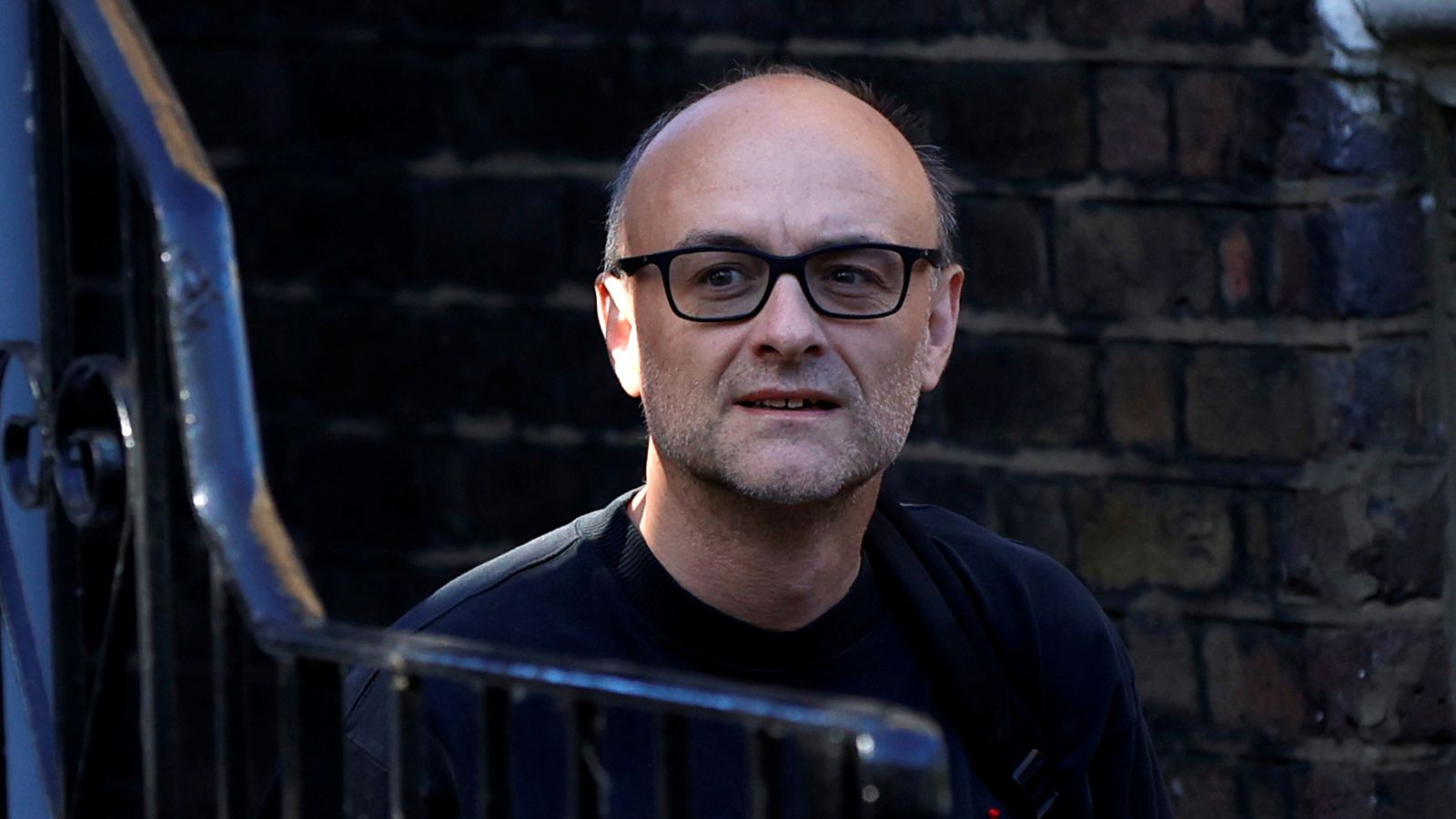In one sense, today was an unquestionable win for Dominic Cummings by securing advertising money can’t buy.
Boris Johnson‘s former top aide’s new paid-for blog – which costs £10 a month or £100 a year to subscribe to – was discussed in Parliament, had the opposition running towards TV cameras and was plastered across every news website and TV channel today.
Such frenetic activity will, one imagines, have done wonders for his subscriber numbers.
This was because he used it to publish screenshots of inflammatory WhatsApp messages between him and the Prime Minister guaranteed to excite and tantalise.
No matter that they were short, de-contextualised and sometimes ambiguous.
Mr Cummings dropped his latest 7,300 word treatise 23 minutes before Prime Minister’s Questions, complete with suggested questions for MPs – who he holds in low regard and would not have trusted to devise themselves – to lob at Mr Johnson at the dispatch box just for good measure. It is almost as if the Westminster machine were all pawns in his cunning plan.
None of which would have happened if he had simply handed over the evidence directly to Parliament as he has been to do by MPs on the COVID-19 inquiry select committee.
Perhaps securing more subscribers for his blog was the big aim, given the primary purpose – to oust Matt Hancock from his job as health secretary and lob grenades at the prime minister as well – has failed in the short term.
Indeed Mr Johnson has cleaved himself ever closer to Mr Hancock for now, not wanting to give his former aide a scalp. The weaponised brief excerpts of private messages from the most stressful period in government in a century did not change that calculation.
The PM’s own words suggest his relationship with the health secretary – and his assessment of his own handling of the pandemic – differ uncomfortably from what he says publicly.
And Mr Hancock is not necessarily safe when eventually the next reshuffle comes around, before or after the summer recess.
Mr Cummings is also gradually achieving a second order impact, causing a mutation of the political conversation around the prime minister and the government.
While prosecuting his case against colleagues, he is seeking to prove a series of “truths” about Mr Hancock and Mr Johnson. The black and white nature of his arguments detracts from their credibility, as does the loathing of the people he is criticising.
However Mr Cummings skill lies in his ability as a storyteller and refined observer of detail, and this means he is capable of planting ideas in the minds of figures in Westminster at the chaos of the Johnson administration which they are unlikely to forget.
He compares the PM unfavourably to Dominic Raab when chairing meetings, saying: “as soon as things get ‘a bit embarrassing’ he does the whole ‘let’s take it offline’ shtick before shouting ‘forward to victory’, doing a thumbs-up and pegging it out of the room before anybody can disagree.”
Others who have worked in government believe it a fair characterisation. He also seeded the idea that Mr Johnson wants to leave a couple of years after the next election rather than serve a full term, “to make money and have fun not ‘go on and on’.”
In last month’s select committee appearance, Mr Cummings said: “The Prime Minister said: ‘I am more frightened of you having the power to stop the chaos than I am of the chaos. The chaos means everyone will look to me as the man in charge.’
Again this has lingered in the memories of MPs, who believe it rings true from what they observe of his Number 10 operation.
The venom of his targets detracts from his credibility.
But Mr Cummings manages to do plenty of damage along the way with his observations of the man who employed him to be his closest aide for 17 months.






















